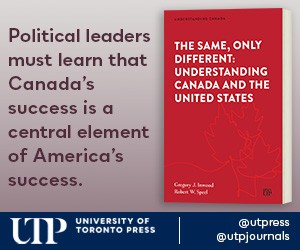The Canadian Parliamentary Press Gallery yesterday rejected mandatory disclosure of all federal grants and subsidies sought by member organizations. Media instead adopted an ethics code requiring only new applicants for membership to reveal financial conflicts of interest.
“That’s cleared up,” said Catherine Levesque of The Canadian Press, the Gallery president. Levesque told a meeting of members in Ottawa that a motion mandating disclosure of subsidies was out of order. The Canadian Press in 2020 petitioned the Commons finance committee for millions in federal grants.
Blacklock’s sponsored the motion stating “that all Gallery members disclose all applications for grants, rebates or subsidies to any branch of the Government of Canada,” and that disclosures be published on a Press Gallery website. The Gallery dismissed the motion without explanation.
“This is a debate for another day,” said Elizabeth Thompson, a CBC producer. “Out of order,” said Philippe-Vincent Foisy, a CBC reporter. “Can we have a vote please?” said Chris Rands, a CBC producer.
The Gallery instead voted for an ethics code solely for new members. The Journalistic Principles And Practices White Paper forbids membership to any new media that fail to disclose “any form of sponsorship” to readers, or any “conflict of interest” including “diverse contracts.”
Staff journalists who voted for the code, including employees of subsidized media, were Rachel Aiello (CTV), Amanda Connolly (Global TV), Bill Curry (Globe & Mail), Lina Dib (Canadian Press), Janice Dickson (Globe & Mail), Philippe-Vincent Foisy (CBC), Murad Hemmadi (The Logic), Melanie Marquis (La Presse), Christopher Nardi (National Post), Shannon Proudfoot (Maclean’s), Boris Proulx (Le Devoir), Greg Quinn (Market News International), Chris Rands (CBC), Guillaume St-Pierre (Le Journal de Québec), Elizabeth Thompson (CBC), Ryan Tumilty (National Post), Marie Vastel (Le Devoir) and Marieke Walsh (Globe & Mail).
Of 45 news organizations accredited in the Press Gallery a majority, all but nineteen, take direct federal subsidies. The Canadian Press news agency, self-described “trusted news leader,” last June 6 petitioned the Commons finance committee for grants equivalent to $500,000 a week to offset revenue losses.
CP President Malcolm Kirk wrote MPs that Parliament should “direct revenue to The Canadian Press to fully offset subscription fees paid by CP’s media clients”. Costs were estimated at $2 million a month.
“It assures that independent, trusted and timely news continues to move nationally to publishers and broadcasters to keep Canadians informed,” wrote Kirk. The Canadian Press never reported on its appeal for subsidies.
Other publishers applied for lucrative 25 percent payroll rebates under a $595 million media bailout approved by Parliament two years ago. “We see the need to adjudicate the organizations that would be eligible for these tax advantages carefully,” then-Finance Minister Bill Morneau testified at 2019 hearings of the Senate national finance committee.
“I’m concerned about freedom of press reporting,” replied then-Senator Raynell Andreychuk (Sask.). “You need to ‘adjudicate’ where the money is going to go. That gives me concern.”
By Staff 







